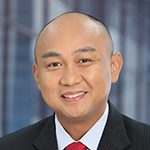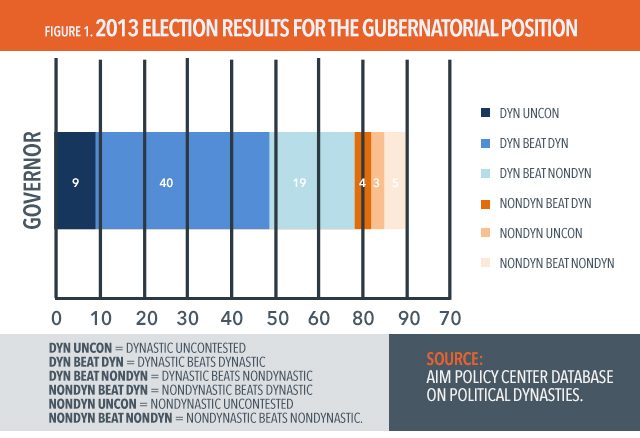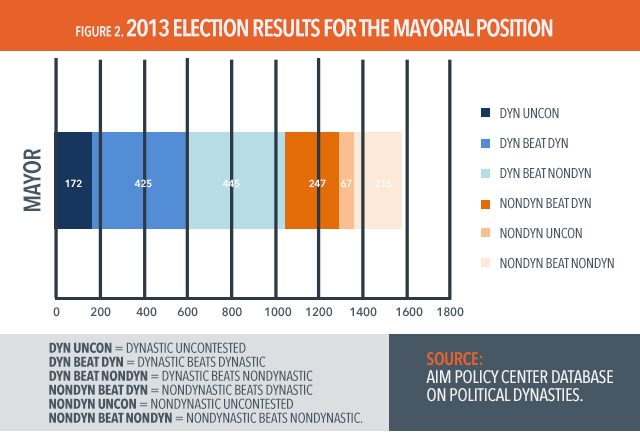SUMMARY
This is AI generated summarization, which may have errors. For context, always refer to the full article.

Last week, I received an e-mail from Hillary Clinton (since I don’t personally know her this is clearly from her campaign staff) asking if I could join her in the Democratic Presidential primary debate to be held in Las Vegas this October. This is an artifact of my former life working in the United Nations in New York.
It turns out that the Democrats have arranged for a lottery so that some supporters could get a chance to engage and be present at the debate. I posted this on my Facebook wall with the following lament:
“Sa kanila naghihirap ang kandidato na mapasama ang mga botante sa usapan. Sa atin, naghihirap ang mga botante na maimbitahan ang mga kandidato sa debate at usapan. Sa kanila debate ng plataporma, sa atin boodle fight.” (In their country, candidates try hard to include voters in the discussion. In our country, the voters try hard to invite candidates to debates.)
“We must challenge the media and academe to push hard (as the only remaining institutions in the country who probably can) to correct this. Why give a candidate extra air time by covering a boodle fight? Academia and media should partner in setting up debates, discussions and town-hall-type meetings for central to local candidates.”
One colleague asked me to write about this, and it occurred to me that the cycle of challenges we face is yet again re-booting.
Lack of substance. Lack of inclusiveness. Lack of options.
These words that characterize our vetting and selection process for these political candidates are likely linked to the perennial absence of “Political Will” when some of these candidates eventually win.
When legislative reforms don’t get passed, or when policy mistakes continue to fester, people often invoke the need for “Political Will”. Is this really surprising when the majority of our citizens are barely consulted on what candidates stand for, and who gets to stand for elections?
What is ‘Political Will?’
Put succinctly, analysts describe political will as “support from political leaders that results in policy change”. The crux of why and how that support takes place is essentially where “Political Will” has been hiding all these decades. We can’t find him because we have been looking in the wrong place and in the wrong way.
Political will can be found where stakeholders—notably voters—engage with their leaders effectively so that they are able to expand the space for reform and exact strong accountability.
Therefore, elections can be considered a triennial search for “Political Will”. And we have failed miserably to find political will because we have been looking for a person—a savior who will somehow deliver all that we wish—rather than working towards a consensus, as a nation, on where we want to go.
Shallow discussion, limited donors, narrow choices
Consensus is forged from inclusive processes that involve deeper discernment of the difficult choices our nation now faces. So it is unlikely that political will can be found among boodle fights where discussion, if any, is dominated by motherhood statements and is often one-sided.
Instead, political will is more likely forged in evidence-based debate and discussion, because that’s one of the ways democracy manages to generate consensus. And yes, debate is often heated because policy options aren’t easy and often imply difficult trade-offs.
Our search for political will is probably going to be more effective when the poorest and most marginalized are also included—so evidence needs to be communicated effectively to all citizens, not just the chosen few.
The other aspect of inclusiveness lies in who’s involved in selecting and fielding leadership options. Evidence suggests that there is a severe lack of leadership choices, notably in the poorest parts of the country.
Drawing on our database on political dynasties and based on studies by Professor July Teehankee of De La Salle University and others, we estimate that there are only about 200 political clans in the Philippines—at this point accounting for the vast majority of our leadership options at both the national and local levels.
When well known political dynasties claim that they continue to be selected by voters, they often gloss over the fact that a growing number of dynastic politicians now run unopposed in their jurisdictions.


Presently, 85% of governorships are dynastic, and of this group, 13% ran uncontested while 59% defeated another dynastic candidate in the 2013 elections. Similarly, 66% of the incumbent mayors are dynastic, and of this group, 16% won without any opponent and 40.4% prevailed over a dynastic opponent.
According to Professor Popoy De Vera of the University of the Philippines, the 2010 elections represented the largest number of leaders running unopposed in the country.
As running for election becomes a more difficult prospect for decent leaders and an all too easy prospect for the moneyed corrupt, then can we expect the decision to still be in the hands of the voters? Do voters still have a choice?
This narrow field of options is matched only by an equally narrow list of donors. According to studies by the Philippine Center for Investigative Journalism, there were only about 300 donors financing the majority of campaign spending by presidential aspirants in 2010.
As political competition continues to deteriorate in many parts of the country, as more voters have no choice but to support their local patron (on whom most of their economic future depends), and as a very narrow field of donors appears to influence (or capture?) the political field on offer, it becomes far less likely for the nation to find political will.
At best, leaders are armed with the position but not with the consensus to forge reforms. At worst, leaders aren’t even interested in deep reforms, and there is little accountability and competition left in their selection.
Challenge for Church, academia and media
Yet, citizens are now beginning to take a stand.
For example, the Pilipino Movement for Transformational Leadership (PMTL)—comprised of faith-based organizations including the Baptists, Methodists, Catholic and other Christian groups—plans to run a People’s Primary that will encourage their members to nominate and select leaders based on principles of merit and a strong policy platform to reduce poverty and inequality in the country. At a targeted participation of 10 million faith-based members, this may yet be the largest political primary process seen by the country since the 1970s.
The “Sagot Kita Bayan” initiative is similarly minded and brings together a multi-stakeholder coalition to challenge candidates to debate and discussion on concrete policy options they will support.
Recently, academic and media groups have also begun to collaborate in hosting evidence-based discussions on key election issues. Here, once again, we see young people speaking truth to power, based not merely on ideology but on the research and evidence generated by academia—among the few institutions left promoting meritocracy and a fair playing field, and resisting dynastic, nepotistic and traditional politics.
In lieu of reforms that build stronger political parties, then perhaps the only hope remains in the few still functional institutions of our democratic society—the academe, Church and media—to try to push for a concerted effort to bring discernment back into our choice of leaders.
Otherwise, we will yet again elect another set of leaders in 2016; but continue to miss among them “Political Will.” — Rappler.com
The author is Associate Professor of Economics and Executive Director of the Asian Institute of Management (AIM) Policy Center. The views expressed here do not necessarily reflect the views and policies of the AIM.
Add a comment
How does this make you feel?
There are no comments yet. Add your comment to start the conversation.